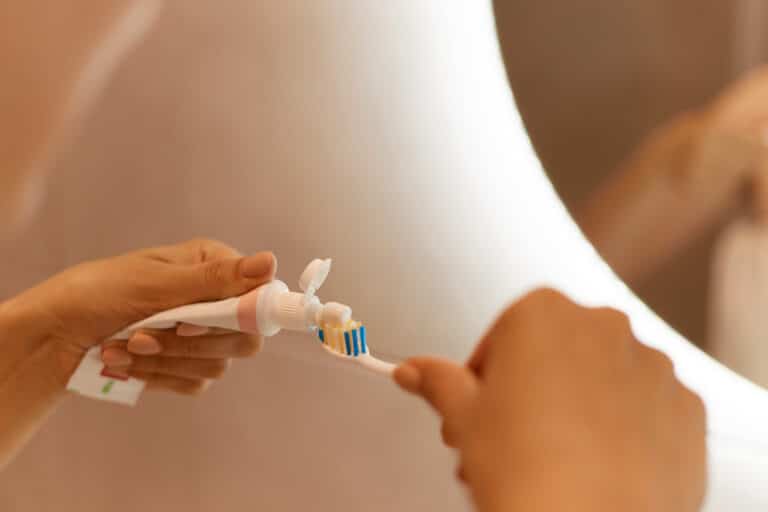Welcome to our clinic’s guide, where we delve into the world of dental care and today’s topic—dental bone grafts. Whether you’re considering this procedure or just curious, we’ve got the insights you need.
What is a dental bone graft?
At its core, a dental bone graft is a surgical intervention aimed at restoring or enhancing bone in the jaw. Picture it as a construction project for your mouth – creating a robust foundation is essential, particularly when planning for dental implants. This procedure becomes necessary when there’s been a loss of bone density, which can happen due to various reasons, including tooth loss, gum disease, or injury.
The process involves taking bone from another part of your body (autograft), using donor bone (allograft), or employing synthetic materials to supplement the existing bone. The chosen method depends on individual circumstances and the extent of bone loss.
A strong foundation sets the stage for a variety of dental treatments, with dental implants topping the list. Implants need a sturdy base to integrate successfully and provide long-lasting support. So, a dental bone graft essentially lays the groundwork for a durable and resilient smile.
Who needs a dental bone graft?
Dental bone grafts are typically recommended for individuals who exhibit insufficient bone density in their jaw, a condition that may result from various factors. Here are common scenarios where individuals might need dental bone grafts:
Tooth extractions

After tooth extractions, especially if they were due to decay or trauma, the surrounding bone may begin to resorb. Dental bone grafts can replenish lost bone, preserving the jaw’s structure for future dental procedures like implants.
Periodontal disease
Advanced stages of periodontal disease can lead to bone loss around the teeth. Dental bone grafts help restore the compromised bone, offering support and stability for both existing teeth and potential dental implants.
Trauma or injury
Accidents or facial trauma can result in damage to the jawbone. Dental bone grafts aid in rebuilding and reinforcing the affected areas, ensuring proper function and appearance.
Congenital conditions
Some individuals may have congenital conditions that affect the development of the jawbone. Dental bone grafts can address these structural deficiencies, providing a solid foundation for various dental treatments.
Long-term tooth loss
Individuals who have experienced long-term tooth loss without replacement may encounter a reduction in bone density. Dental bone grafts become essential to rebuild the jaw, facilitating the successful placement of dental implants.
Failed dental implants
In cases where dental implants have failed due to insufficient bone support, a bone graft can be performed to enhance the implant’s stability in a subsequent procedure.
Do I need a dental bone graft for my dental implants?
For those considering dental implants but lacking the necessary bone structure, a bone graft is often recommended. This ensures the implants have a secure foundation for long-term success.
Tip: Read our blog to find out ways on “How to know if you need dental implants”!
Determining the need for a dental bone graft is a comprehensive process that involves a thorough examination by a dental professional. If you’re experiencing tooth loss, considering dental implants, or have concerns about your jawbone’s health, consult with our experienced dentists. We’re here to assess your individual situation and guide you on the most suitable path to a healthier, more confident smile.
What does dental bone graft help with?
Dental bone grafts aren’t just a surgical procedure; they play a pivotal role in addressing bone loss and serve as the crucial foundation for supporting dental implants. In essence, they lay the groundwork for a smile that’s not only aesthetically pleasing but also structurally robust.
Addressing bone loss
One of the primary functions of a dental bone graft is to address bone loss in the jaw. Various factors, such as tooth loss, periodontal disease, or trauma, can lead to a decrease in bone density. This diminished bone mass not only affects the overall structure of the jaw but can also impact facial aesthetics. Dental bone grafts step in to counteract this loss, ensuring that your jaw maintains the necessary volume and density for a healthy, vibrant smile.
Providing support for dental implants

Dental implants are a popular and effective solution for replacing missing teeth. However, the success of these implants relies heavily on the strength and density of the underlying jawbone. Here’s where the dental bone graft takes centre stage. By reinforcing the jaw with additional bone material, the graft provides the sturdy support required for the successful integration and long-term stability of dental implants. This process ensures that your new teeth not only look natural but also function seamlessly, mimicking the strength of your natural dentition.
Improving overall oral health
Beyond its role in addressing specific issues like bone loss, a dental bone graft contributes significantly to enhancing overall oral health. A robust jawbone ensures proper alignment of teeth, which, in turn, promotes healthy chewing and speech patterns. Additionally, maintaining adequate bone density supports the longevity of surrounding teeth, preventing further tooth loss and preserving the integrity of your entire dental arch.
Think of dental bone grafts as the groundwork for a sturdy smile!
To put it simply, a dental bone graft can be likened to laying the groundwork for a sturdy smile. It’s the essential preparation that sets the stage for various dental procedures, ensuring their success and longevity. Without a solid foundation, dental treatments may face challenges, potentially leading to complications down the line. With a dental bone graft in place, you’re not only investing in the aesthetics of your smile but also fortifying the structural integrity of your entire oral cavity.
At WeSmile Dental, we understand the transformative impact that a dental bone graft can have on your oral health and overall well-being. Our dedicated team is committed to guiding you through this process, ensuring a seamless journey towards a confident and enduring smile. If you’re ready to take the next step in your oral health journey, schedule a consultation with us today!
What can you expect after dental bone graft?
So, you’ve just undergone a dental bone graft, and now you’re on the road to recovery. What lies ahead? Let’s unravel the post-graft experience, offering insights into what you can expect and how to navigate this crucial phase with confidence.
After the procedure, it’s entirely normal to experience some swelling and discomfort. Your body is undergoing a healing process, and these initial symptoms are indicators that things are progressing as they should. Don’t be alarmed; instead, focus on the positive fact that your jaw is on its way to becoming a stronger, more supportive foundation for your dental implants.
What does the recovery process after a dental bone graft look like?
Immediate postoperative period
In the first few days after your dental bone graft, it’s not uncommon to experience mild to moderate swelling around the surgical site. Discomfort is also expected, but your dentist will prescribe appropriate pain medication to manage any pain effectively. During this immediate postoperative period, taking it easy and allowing your body to rest is crucial. Avoid strenuous activities, and give yourself the time you need to recover.
Oral hygiene is paramount

Maintaining excellent oral hygiene is a key factor in ensuring a smooth recovery. Your dentist will provide detailed post-operative care instructions tailored to your specific situation. This typically involves gentle brushing of your teeth, avoiding the surgical site initially, and the use of a prescribed mouthwash to keep the area clean and free from infection.
Soft diet and patience
While your jaw is in the process of healing, it’s advisable to stick to a soft diet for a few weeks. This helps minimise stress on the surgical site and promotes optimal healing. Incorporate foods like mashed potatoes, yoghurt, and soups into your diet during this period. Remember, patience is your ally during recovery. Allow your body the time it needs to integrate the graft seamlessly with your natural bone.
Follow-up appointments

Regular follow-up appointments with your dentist are scheduled to monitor your progress. These appointments are crucial to ensure that the graft is healing correctly and that there are no signs of infection or complications. Your dentist may also adjust your post-operative care instructions based on how your recovery is progressing.
Remember, our dedicated team at WeSmile Dental is here to guide you every step of the way. If you ever have questions or concerns during your recovery, don’t hesitate to reach out. Your journey to a stronger, healthier smile is well underway!
What are the risks of dental bone graft?
Like any medical procedure, dental bone grafts come with potential risks. Don’t let that scare you off, though! Common risks include infection, bleeding, or an adverse reaction to anaesthesia. Rest assured, our experienced team takes every precaution to minimise these risks and ensure a safe and successful procedure.
How long is the recovery process after dental bone grafting?
Patience is key! The recovery time varies from person to person, but generally, you can expect to return to your normal routine within a few days. It’s essential to attend follow-up appointments, allowing us to monitor your progress and make any necessary adjustments to your care plan.
Embracing a radiant smile: Navigating the dental bone graft journey

Embarking on the dental bone graft journey is a commitment to restoring not just teeth but confidence and well-being. Our team and dentists at WeSmile Dental are here to illuminate the path to a revitalised smile. If you’re ready to explore the possibilities or have lingering questions, reach out to us. Your journey towards optimal oral health and a radiant smile begins with a single conversation. Book a consultation with us today!
FAQs
How does the dental bone graft procedure enhance oral health?
This is where the magic happens. By restoring bone density, a dental bone graft provides a robust foundation for dental procedures, preventing further bone loss and enhancing the success of treatments like implants. It’s like giving your smile a structural makeover!
Can I drink alcohol after a dental bone graft?
While it’s tempting, it’s advisable to avoid alcohol during the initial stages of recovery. Alcohol can interfere with the healing process and may interact with medications. Once you get the green light from your dentist, feel free to toast to your improved oral health.
Are there alternative treatments to dental bone grafting?
While dental bone grafts are highly effective, they may not be the only option. Depending on your unique situation, alternatives such as synthetic bone grafts or distraction osteogenesis may be considered. Consult with your dentist to explore the best path for your oral health.


